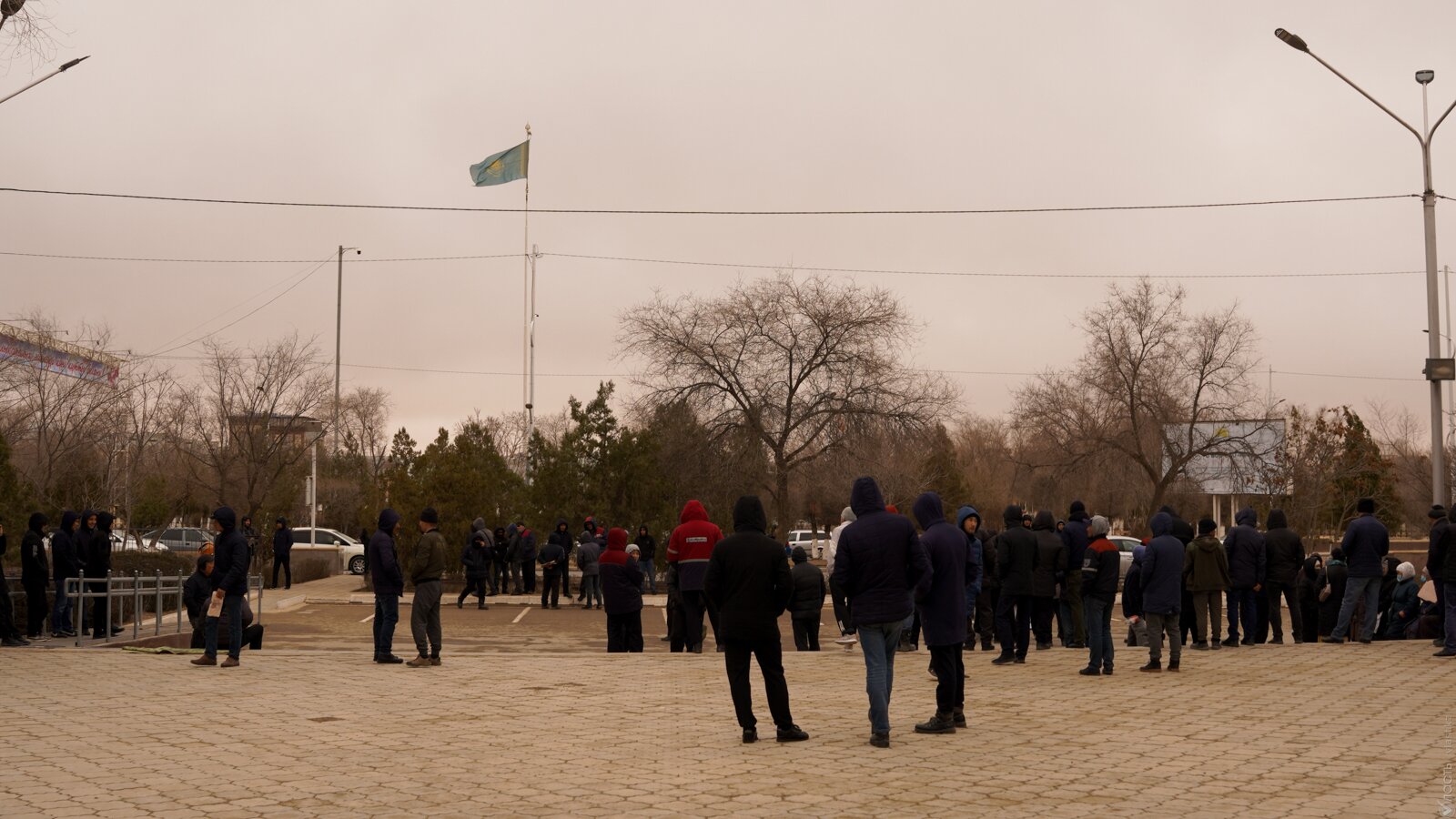- ВКонтакте
- РћРТвЂВВВВВВВВнокласснРСвЂВВВВВВВВРєРСвЂВВВВВВВВ
“We demand that privatized companies are returned to the state!,” the workers said in unison, demanding the nationalization of oil service companies and the abolition of outsourcing tenders.
Why do they target privatization?
In the 2000s, oil and gas companies, both foreign and local, devised a strategy of “optimization” of their staff. It implied the outsourcing of their divisions (food, transportation services, and even drilling operations) to private companies.
At the same time, state-owned oil service companies began to be privatized into the hands of members of the elite. The workers of private companies, however, were the same ones who were once employed by state-owned companies.
The only changes they saw in this privatization process was the worsening of their work conditions, aging equipment, and the disappearance of social guarantees.
And what about these tenders?
Oil and gas companies publish tenders to hire companies to fulfill service work for them. Because this system rewards the best (cheapest) offers, service companies try to keep their budget small by saving on workers.
It’s not uncommon that new companies are set up only to win a tender and then hire workers from the company that lost. For the workers, it is the same job, but their overalls bear a different logo and, in most cases, their contracts feature worse working conditions.
These practices, pursued in the interests of the oligarchy, have created an unstable labor environment, which has encouraged workers to protest over the past 15 years.
The latest such example is a strike at the oil service company West Oil Software.
Its workers were once employees of the state-owned oil services company Oil Transport Corporation, a subsidiary of Kazmunaigas. They worked at one of its production bases - the Zhetybai Department of Technological Transport (ZhUTT). Five years ago, during the staff “optimization” process, they were asked to sign a “5/50” agreement, which allows them to receive compensation when leaving a state-owned company.
ZhUTT was then transferred to the trust management of the private company West Oil Software, which hired the laid-off workers. Now, due to the deterioration of working conditions, they are demanding that the company be returned to state ownership, and that the unified wage system used at the national company Kazmunaigas be extended to them, which the private company considers impossible.
This confrontation has, once again, become polarizing, fueled by state bureaucracies and entrepreneurs. Some people, in fact, believe that “oil workers already receive good salaries” and if they “don’t like it, then there will be thousands of unemployed people ready to replace them.” This criticism misses completely the reality of poor working conditions, as well as the suppression of trade unions and prosecution of workers.
In a region that relies on oil and gas extraction, job instability in this sector means dooming yourself, your family, and your closest ones to poverty. The government failed to diversify the region’s economy, and instead chose to reconfigure legislation against strikes and trade unions. And now it stands again on the side of the company, not the workers.
Поддержите журналистику, которой доверяют.








